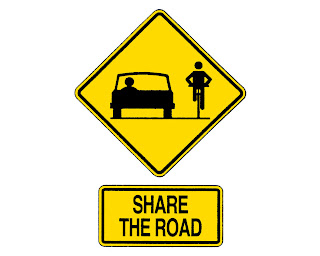As you may know, I am fairly relaxed about the idea of sharing data about me for the purposes of research. But now I find myself in a dilemma about sharing my research data.
The vast majority of public health research funding in the UK comes directly, or indirectly, from government, or charities. As someone who has benefitted personally (they pay my salary) and professionally (they pay for my research) from this public funding, I feel some duty to remember who is paying for it all. I make efforts to share my findings with the public, and have tried to learn how to do this better. I believe strongly in the very concept of Fuse and the need to engage with those working in public health policy and practice to ensure that my research is relevant and usable, and is used.
The research data produced as a result of my public funding is not my data, it is our data. I know this. And yet now that I have been asked to share some, I keep trying to think of reasons not to.
 |
| Sharing is caring |
The research was very data intensive. We bought a large spreadsheet of information describing every single advertisement on UK television over four different weeks – before, during, and after the regulations were implemented. From among these 2.5 million adverts, we picked out the food ads and collected separate information on the nutritional content of every food advertised. Next, we worked out which foods met the definition of ‘unhealthy’ and compared the number of ads seen for unhealthy foods across our four study weeks. You can imagine that it needed a very special sort of person to have the patience and attention to detail to do all of this. It took her a year.
Our findings were published last week and there was a small amount of media coverage. I thought it wasn’t enough coverage, but it was enough to attract the attention of a snack food marketing organisation. Now they would like to know if our data could be used to track changes in snack food advertising. They are even suggesting that they could pay for a researcher to perform such an analysis.
I feel deeply unsure about getting involved in this. As someone who has real concerns about the public health impacts of the food industry in general, merely speaking to these people feels like dancing with the devil. But, presumably my publically funded data belongs to British industry as much as it does to the British public.
Right now I am employing delaying tactics – and not just writing this. Soon I will have to make a real decision about what to do.

The more research we do on the food industry (including manufacturers and retailers), the more like Big Tobacco they start to seem. I think the answer to this dilemma is to make a realistic, fully-economically-costed-for-the-private-sector estimate of what it would cost to provide said data for them. Hopefully this will act as a sufficient disincentive to prevent anyone actually making use of 'our' data for dubious industry purposes. If it doesn't, then at least you'll have some funds to collect some more data.
ReplyDelete